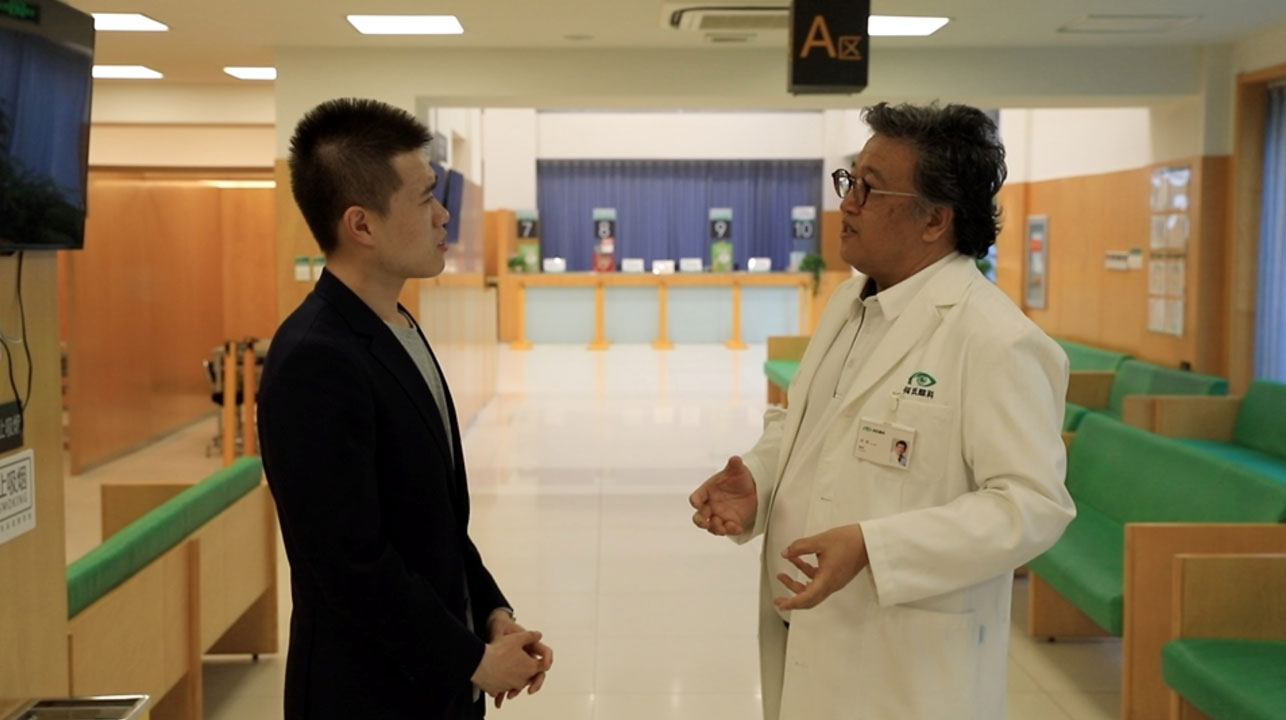
Dr. He Wei (R), the founder and president for He Eye Specialists Hospitals, speaks with CGTN’s Xu Xinchen in one of his hospitals. (Photo: CGTN)
17-year-old Lu Rongkai was born into a world most of us will never know. While peers his age are enjoying life with all its possibilities, his world is blurry, fuzzy and unrecognizable. Diagnosed with cataract coupled with congenital high myopia, it was not until an eye gene pool group found and helped treat him in June this year.
“As far back as I can remember, I have not been able to see clearly. When I went to school, I was certainly different,” said Lu.
Due to late treatments and years of burden on his eyes caused by the diseases, Lu cannot see in the bright light or any objects a few centimeters away. And he won’t be able to regain full vision either.
Lu is one of some 30 million Chinese people who have been diagnosed with high myopia. Chances are high for parents with the disease to pass this extreme near-sightedness down to their children. Yet, with today’s gene technology, it is possible to stop similar tragedies from happening to other children. Prenatal diagnosis and in vitro fertilization can help stop diseases from passing into the bloodline.
“I believe bio-technology and genome technology can help most patients. Early diagnosis can help prevent many diseases. We have the methodology and technology to intervene and delay things from happening, via early treatment,” said Dr. He Wei, the founder and president for He Eye Specialists Hospitals.
With goals to further develop the country’s capability of gene technology on curing eye diseases, Dr. He Wei’s hospital, the Eye Gene Library of China National GeneBank and one of the world’s largest genomic organization, BGI, initiated a national eye genome project to collect 100,000 eye gene samples to help draw a map for the eye gene mutation among Chinese people.
But, with the fast development of genomic technologies, it also raises issues of privacy – especially of everyone’s unique sequential codes that make up who we are.
“We have to make sure patients are in the know, and that they manage their genetic data based on Chinese people’s values. We must respect the natural world while using these technologies to better lives. It's not just about technological advancement, but more importantly it is an ability to provide solutions. This should be where China is heading in terms of precision medicine,” said Yin Ye, the CEO of BGI.
As for Lu, he'll be able to see up to a meter away upon full recovery. And he hopes he will soon be able to read and attend university so that he can make a better life for himself.


